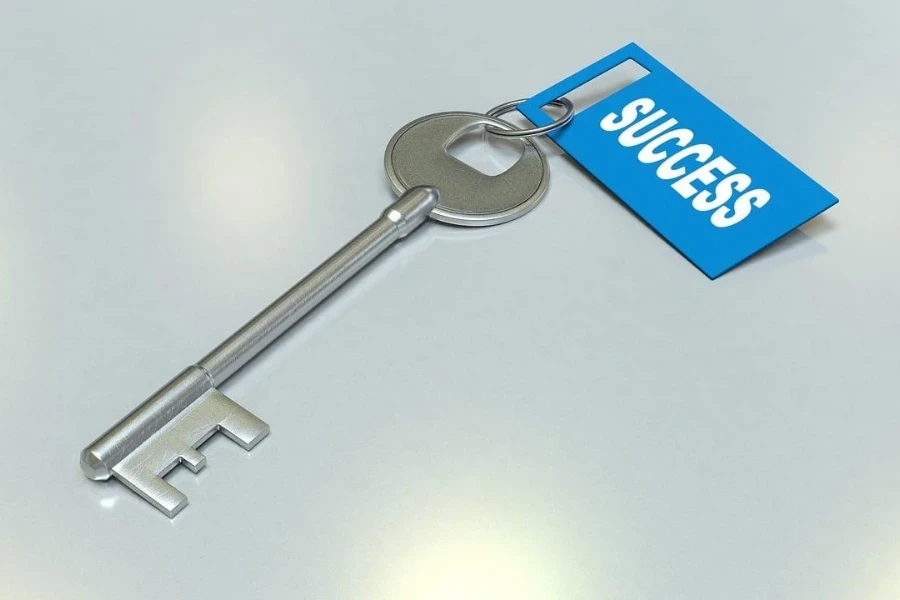Amazon sales in North America (Q1 2023) jumped to over $76 billion, marking an 11% YoY growth. It comes as no surprise, given the eCommerce giant’s expansive global reach, with over 300 million customers in more than 180 countries, and massive marketplaces with small- and medium-sized businesses acting as the platform’s third-party selling partners. However, how can businesses, particularly SMBs, leverage Amazon’s continued growth? While getting into the platform as a seller is relatively easy, chances are, you’ll be up against a lot of competition pretty soon, especially if you’re selling in popular categories like home and kitchen and beauty and personal care.
One way to take advantage of this global, growing platform and to stand out from a sea of competition is by getting ungated on Amazon. This guide covers the basics of getting ungated on Amazon, what it is, why it matters, and what you can do to get ungated in different categories.
Gated Categories on Amazon: What They Are and Why They Exist
To maintain safety and credibility and to protect both buyers and sellers, Amazon has created “gated” categories. These gated categories also allow Amazon to maintain the quality of the products being sold on the platform, as well as nurture their customers’ trust by preventing sellers from selling counterfeit items. Moreover, gating certain categories helps Amazon ensure that sellers meet the platform’s policies and criteria for specific product categories.
A gated category refers to a group of products that require special permission from Amazon before they can be sold on the platform. This means that sellers hoping to sell restricted items will need to undergo a special approval process that may involve document requests, such as invoices or certifications, performance checks, and additional fees.
Note that there are some limitations to gated categories. For instance, some brands may be counted as gated in certain countries, such as when someone sells a product in the US but not in the UK. Furthermore, selling restrictions may also only apply to certain products from the same brand. For example, you may be able to sell IR lasers from Brand A but not laser pointers from the same brand.
Examples of Gated Categories
Amazon has several gated categories that require you to seek pre-approval from the platform prior to listing. Note that for FBA sellers, Amazon has a separate FBA Product Restrictions page that covers products not eligible for its FBA program.
Moreover, some products are subject to additional regulation depending on your state or country. According to Amazon, if a seller wants to make their item available for international purchase, then they’ll need to conduct proper research to ensure that their products comply with all applicable laws and regulations.
Below are some examples of gated categories:
- Fine art
- Jewelry
- Services
- Sports collectibles
- Watches
Meanwhile, an “ungated” or open category covers products that are legal to sell and allowable for you to include in your listing. Sellers can list and sell such items without needing additional approval. The great thing about products in open categories is that they don’t have any limits on selling. However, because these tend to have lower barriers to entry and are, therefore, easier to sell, they can bring in a lot of competition.
Examples of Ungated or Open Categories
Below are some categories or products that don’t require special approval from Amazon. Note that while a category may be listed as ungated or open, it may have subcategories or even specific products that will still need to undergo an approval process.
- Books (new and used)
- Consumer electronics
- Home and garden
- Office products
- Pet supplies
How to Get Ungated on Amazon in Different Categories

Prior to getting ungated, you’ll need to:
- Sign up or upgrade to a Professional Selling Plan, which is required for sellers who want to sell products under restricted or gated categories. This plan costs $39.99 per month, exclusive of additional selling fees.
- Identify the specific product you want to sell and check if it’s gated. If it is, you’ll need to apply for approval.
Applying for approval on Amazon is relatively straightforward, but getting ungated may take anywhere between several hours to days, weeks, or months. Automatic approvals do happen, but these will depend on factors such as how long you’ve been selling on Amazon and your performance. If you don’t get instant approval, it’s likely that the system will require you to provide additional information. Amazon weighs in several factors, including your invoices, sales history, and order defect rate (ODR), to determine whether you’ll be given access to gated categories. In case your application gets rejected, you’ll be given the reason for rejection, which serves as a guide if you’re planning to reapply.
To start the application process, you’ll need to:
- Sign in to your Amazon Seller Central account.
- Click on the Inventory tab and select “Add a Product”.
- Look for the items you want to sell, and if it’s restricted, click the “Listing Limitations Apply” link to view the required approvals.
- Click the “Request Approval” button and fill out the application form. Note that it’s also possible to get a notification stating that the platform isn’t currently accepting applications for that specific product.
However, each gated category entails a different ungating process, which is why it’s crucial that you focus on a category you want to work in. It’s worth noting that while guidelines and some requirements may vary, there are several requirements for approval that apply to different categories, including:
- Signing up for the Professional Selling Plan
- Completing the application form
- Having a good seller performance (metrics)
- Documentation (invoices, certifications, etc.)
- Company website
Below are some examples of different gated categories on Amazon and what you can do to get ungated.
Automotive and Powersports
Aside from the abovementioned requirements, sellers who want to break into this category should host product images that comply with Amazon’s requirements. These should also be hosted on an independent website. Additionally:
- Products should have proper UPC codes
- Seller should provide a manufacturer or re-manufacturer warranty (for refurbished products)
Collectible Coins
Sellers must be a member of organizations such as the Professional Coin Grading Service (PCGS) and the Industry Council for Tangible Assets (ICTA). The coins should be graded by organizations such as the Numismatic Guaranty Company (NGC) or the PCGS. Sellers should also have an anti-money laundering program and should be capable of providing Amazon with the necessary documentation.
Collectible Books
Sellers who wish to sell collectible books should meet performance metrics, such as having an order defect rate of less than 1%. Other requirements include:
- Listing the collectibles under ISBN-10 or ISBN-13
- Books should be actual collectibles, such as first editions, and should therefore be unique
Fine Art
This category is restricted to fine art dealers and gallery owners who have been in the industry for a minimum of three years. Moreover, sellers are required to have a strong online (own website or third-party website) presence.
Fine Jewelry
This gated category comes with a hefty ungating fee, which makes it one of the more challenging categories to break into. Additional requirements include:
- A minimum of 12 months of experience selling on the platform
- Annual revenue should be $50,000 and up
- Seller should have at least one physical store/established business with an annual revenue of $50,000 or more
- Products should meet Amazon’s Quality Assurance Standards
Food and Beverage

While gated, this category is a bit more flexible, as it applies to almost all Amazon sellers. However, the application process for the Food and Beverage category tends to be more complex and entails strict deadlines.
- Sellers must meet the required performance metrics.
- They should have an account with a credible wholesaler.
- Sellers need to place an order first to provide Amazon with invoices, which should be scanned or photographed.
- You need to document the item’s ASIN, UPC, and item model number on Amazon.
- Submit your application.
Sports Collectibles
The Sports Collectibles category is a bit more particular when it comes to seller performance, given that for your application to be approved, you must have an order defect rate below 0.75%, instead of the usual 1% ODR. Additionally, all sports collectibles for sale need to pass through authentication or be graded by authorized parties.
Watches
Aside from the typical requirements listed earlier, sellers who want to get ungated in this category must make sure that all their watches are listed using the manufacturer-provided UPC code. In addition to that, all watches must be tested for accuracy and water resistance. This applies to pre-owned watches in particular. Sellers who want to sell branded watches must also seek approval from the respective brands first.
Wine
This category is also difficult to break into. That’s because getting ungated in this category requires sellers to:
- Be a licensed winery, registered as an importer, or a registered wholesaler
- Meet Amazon’s shipping requirements
- Comply with your state or country’s regulations when it comes to selling alcohol or wine
Consequences of Ignoring Amazon Product Restrictions
Selling restrictions are placed on individual products or similar products like products from the same brand. These restrictions may be applied to attributes such as individual ASINs, brands, and sub-categories, among other attributes. In cases where selling restrictions overlap, you’ll need to submit separate applications for approval.
Failing to meet Amazon’s requirements may result in the revocation of your selling privileges. This could mean that your listings could be canceled or that your listing privileges may be limited, suspended, or removed. It’s also possible for your account to be suspended or removed.
Moreover, for FBA sellers who fail to comply with FBA product restriction requirements, your inventory may be refused, disposed of, or returned to you when they get to an Amazon fulfillment center. Aside from getting your selling account deactivated, future shipments may also be blocked and you may be charged for noncompliance.
How to Check for Gated Products on Amazon
There are several ways to check if a product is gated:
Via Your Amazon Seller Central Account
Log in to your Amazon Seller Central account and search for gated products or categories. You can do this by clicking on the Catalog menu from your Seller Central Home page. Next, select “Add a Product” to look for items you want to sell. Click the “Show limitations” link in the search results to see if any restrictions apply to a particular item.
Opening a Case
You can also contact Amazon Seller Support to check if an item is gated or not. If it is gated, you can ask Seller Support for guidance on how to get ungated.
Creating a Dummy Listing
Setting up a dummy listing automatically triggers restrictions for certain items. To make sure that you comply with all requirements, convert your listing to FBA.
Getting Ungated on Amazon—Why It’s Crucial for Business
Getting ungated on Amazon takes some work, but it also opens up opportunities for growth. Below are some benefits of breaking into the platform’s gated categories:
There’s less competition
As mentioned earlier, getting approval for gated categories will require some effort. This relatively high barrier to entry can prevent some sellers from pursuing gated categories, thereby giving you less competition, better brand visibility, and more sales opportunities.
Diversified Inventory
Aside from the abovementioned benefits, getting ungated can also broaden your inventory. If you get approved for several gated categories, you may want to expand your product range instead of solely relying on one product or category. Getting approval to sell restricted items can also help you expand your reach by allowing you to cater to potential customers who are looking for specific products.
Enhanced brand reputation
Getting approval for gated categories means you’ve passed Amazon’s requirements and standards. This implies that you’re selling high-quality, safe, and authentic products, which can help boost your reputation.
Ungating Services: What Are They and Should You Use One?
Ungating services are third-party companies that help sellers unlock gated product categories. If you want fast approval with higher approval rates—without doing all the paperwork by yourself—and if it’s within your budget, then yes, you may want to opt for Amazon ungating services. This helps you focus on growing your business. However, such services can be expensive, and there’s no guarantee that your application will be approved by Amazon.
Best Practices to Get Ungated on Amazon
While there’s no one-size-fits-all approach to getting ungated, here are some actionable tips you can follow to increase your chances of your application getting approved.
Your Address Matters
Make sure that your shipping and billing address match and that these match the address on your seller account. Both addresses should be accurate and updated. You also need to provide your contact information, as well as that of your supplier to establish credibility.
Keep Your Invoices
Make sure to keep a record of your supplier invoices. When submitting an invoice for ungating, include the finalized invoice in a non-editable format to help establish its legitimacy. Your invoice should include key information such as the invoice number, date of order, supplier’s contact information, the seller’s shipping and billing address, and a detailed list of the purchased products, among other details.
Focus on Improving Your Listing
Your listing should comply with Amazon’s policies and guidelines. Aside from monitoring your listings, make sure to stay on top of policy updates so that your listing stays compliant.
Continue to Improve Your Performance
Factors that influence your approval include your reputation and history as an Amazon seller. To increase your chances of getting approved, it’s important that you work on improving your performance and providing your customers with unparalleled experiences. It’s also vital to monitor KPIs such as your order defect rate (lower than 1%), pre-fulfillment cancel rate (lower than 2.5%), and late shipment rate (lower than 4%).
Protect Your Listing from Unethical Sellers
Your listing can be hijacked by unethical sellers whose activities can cause your account to get suspended. To avoid potential issues, protect your business by using an Amazon brand monitoring and listing monitoring tool like Bindwise, which provides 24/7 ASIN/listing monitoring and real-time email alerts.
Fuel Your Business’s Growth by Getting Ungated
One way to grow your Amazon business is to get access to gated or restricted categories. By being able to sell products in such categories, you’re not only diversifying your product portfolio but also catering to a wider audience. This, in turn, can potentially lead to higher revenues. Moreover, getting approval for gated categories signals that the seller meets Amazon’s regulations and can be trusted as someone who sells high-quality, safe, and authentic products.
However, prior to investing a lot of money into one product, it’s vital that you familiarize yourself with Amazon’s policies. Violating the platform’s policies and regulations may cause your account to be suspended and your listing privileges to be limited or canceled.
A marketplace management platform like Threecolts can give you custom business solutions you can use to manage your business and make it more agile. Register for free and discover how Threecolts can transform your Amazon business.
Source from Threecolts
The information set forth above is provided by Threecolts independently of Alibaba.com. Alibaba.com makes no representation and warranties as to the quality and reliability of the seller and products.




